The first time I remember being excited for college was the day I watched “Pitch Perfect.”
I was captivated by the multitude of clubs, perfectly manicured campus, charming a capella stars and the palpable energy of incoming students. At one point or another, many of us were enamored with the college life we observed on screen. After watching countless movies from the early 2000s filled with students throwing frisbees on an aesthetically pleasing quad, studying in Gothic libraries and hosting school-night ragers — or riff-offs — my expectations for higher education were lofty.
I quickly learned that these coming-of-age college movies fail to capture the less romantic but equally prevalent aspects of college: countless hours spent holed up in the library — which are not as picturesque as the movies suggest — rolling out of bed on a frigid morning to an 8 a.m. alarm and sacrificing weekends to cram for exams. Even when films address the academic component of college, the protagonists can miraculously tend to their studies while maintaining an eventful social calendar.
Vanderbilt is no stranger to idealizing the college experience; from its perfectly curated social media pages, admissions brochures bragging that students will “discover themselves here” and highest quality of life ranking, it’s no surprise that new students arrive in Nashville with high expectations.
While I can attest that some utopian aspects of higher education are true, the college experience is ultimately overrated and unattainable for students attending university in 2023.
Firstly, the definition of a “college experience” has evolved tremendously in recent years as the result of a laborious application process that has somehow become even more competitive. Vanderbilt received under 10,000 applications in 1999, leading to an acceptance rate of 61%. In contrast, the class of 2027 received 47,120 applications and sported a record-low acceptance rate of 5.6%.
As the number of applicants continues to increase due to widespread recruitment efforts, standardized admissions practices like the Common Application and cultural emphasis on higher education, it seems that the bar for college admissions is being raised every year. This contributes not only to plummeting acceptance rates, but also to students’ experiences once they arrive on campus. While being surrounded by intelligent and driven peers is a privilege, the pressure of living up to such a high standard can make it nearly impossible to achieve a healthy balance of academics and leisure.
When you are surrounded by cutting-edge researchers, Team USA athletes and award-winning academics, comparison is bound to breed contempt and anxiety. Explicit and implicit expectations to excel in the classroom, make lasting social connections and hold on our own against accomplished peers can become exhausting. At a certain point, something needs to be taken off our plate — but how are students supposed to choose between academic success and the idealized college experience?
I am not alone in thinking that the pressures facing today’s undergraduates are unprecedented. At a Latin American and Hispanic Heritage Month open dialogue event, anthropology and medicine, health and society professor Dominique Behague said she felt more difficulty relating to students on a personal level than in years past because of an ever-changing world.
“I’m old enough to feel like I can’t actually be in [young people’s] shoes because of the massive global shifts that have happened in the last five years,” Behauge said. “When I graduated, there was a recession, and we thought it was okay to wait tables for a couple years. [Today] is different; I see the pressures to figure it all out, get a job and get your careers in order are much higher, and the stakes are much higher in general.”
In addition to these career concerns Behague described, there are also social pressures to have the perfect college experience in order to recover from our “lost” COVID years. Millions of students had high school milestones cut short or foregone entirely due to the pandemic; whether it was prom, graduation or conversing with friends without wearing a mask, there is a general sentiment that our generation missed out on pivotal experiences.
For “COVID kids,” college is viewed as a one-time opportunity to make up for the lost time — yet, we are expected to balance a robust social life with challenging academics, graduate school preparation and job applications all at warp speed. When also considering the fact that the pandemic contributed to a mental health crisis among teens, college seems less like a fantasy and more like a taxing to-do list.
With that being said, I am incredibly grateful to be a Vanderbilt student and I remain firm in the belief that attending college is an immense privilege. As a transfer student, I also understand that a subpar college experience can sometimes be attributed to a perceived lack of belonging at a particular institution. Therefore, I would encourage prospective students to find a university that meets their academic, social and emotional needs. This entails prioritizing not only prestige and rigor, but also putting oneself in a position with a present support system and balanced environment.
Prior to attending Vanderbilt, I completed my freshman year at a small liberal arts college in the northeast. It’s safe to say that both schools were quite different environmentally, culturally and socially, and in a sense, my college experience has been almost as diverse as it can get. Yet, despite the obvious distinctions between each school, I can confidently say that neither experience has quite lived up to the marketing of Hollywood.
While both universities I attended have surrounded me with talented peers, passionate professors and rigorous academics, I have at times struggled to find my people, maintain a healthy self-esteem and balance a packed schedule. Starting over at a new university didn’t fix fundamental flaws with the way our society views college, and simply being at a different environment did not alleviate academic and social pressures.
My college journey has not been linear by any means, and there are very few — if any — movies that depict a protagonist having a mediocre experience, starting over and attempting to navigate similar challenges in a new environment. Moreover, even if a school is an ideal fit for a particular student, higher education presents universal difficulties that are experienced by most undergraduates—such as homesickness, cultural shocks and social anxieties — yet they are not openly discussed in society or media.
My goal is not to deter students from attending college. Rather, I wish to debunk the pervasive cultural narrative that one’s college experience has to be perfect and that life goes downhill after graduation. College is fun and rewarding, but it is also incredibly challenging.
Vanderbilt can do its part in easing the transition to college by encouraging students that it is acceptable to carry less of a load, or at the very least, investing in available support services like Student Care Network so that students do not have to undergo the journey alone. The university prides itself on attracting bright students and “daring to grow” as a globally recognized institution; however, these efforts do not have to be synonymous with burnout.
We are told that we belong here, but are students offered enough chances to find a genuine community outside of academic stressors? As a school community, do we put too much emphasis on productivity and staying “busy,” rather than attending social events or extracurriculars out of sheer enjoyment? Acclimating to a new environment poses inevitable challenges no matter the school, but the administration can make a difference when it comes to ensuring students are comfortable and well-adjusted on campus.
So, how can Vanderbilt work to live up to its friendly and welcoming reputation? Instead of promoting clubs that have a sub-5% acceptance rate for the sake of “networking,” there should be equal value placed on organizations that exist solely for the purpose of socialization and entertainment. The same way incoming students are assigned an academic advisor, students could also be assigned a care coordinator at the beginning of the school year for the specific purpose of discussing time management, social integration and confronting homesickness. The VUcept program could also be expanded to include mentorship beyond the first two months of a student’s first year; interested students could be paired with mentors who have more college experience under their belt and can offer guidance when needed.
Additionally, Vanderbilt should streamline its communication process to highlight student support services. Instead of being inundated with emails from InnerVU, MyVU, Alert VU and Residential Colleges — which leads to mentorship programs like The Peer Guide program flying under the radar — email communication should be simplified to a singular weekly newsletter that emphasizes resources for student wellbeing. While none of these initiatives would inherently solve the glamorization of higher education, they would help students feel more secure in adapting to college life.
No student is a failure because their time spent at university does not live up to idyllic movie scenes. In fact, it may be time to reevaluate the definition of a college experience entirely. After the tumultuous years that today’s undergraduate students have faced, Vanderbilt should do its part in easing the transition to college by encouraging students to start slowly and offering support along the way. Rather than making the same mistake I did by comparing my experience to an impossible standard, I urge students to pursue genuine happiness with the understanding that college is not the end all, be all to their prosperous future.



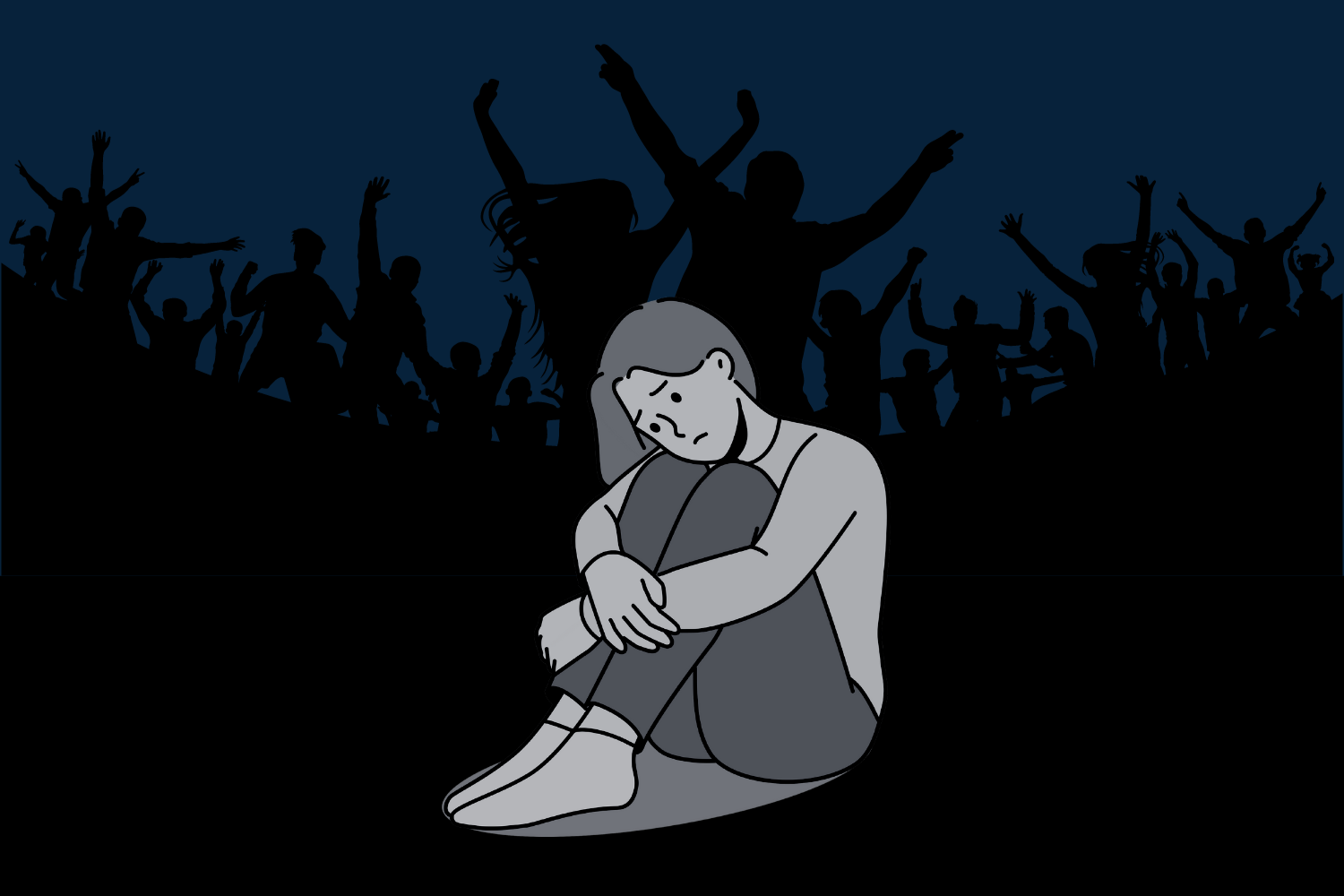
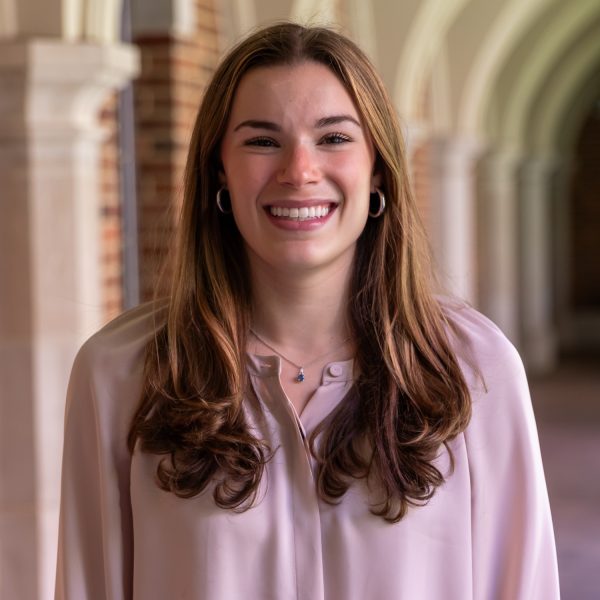
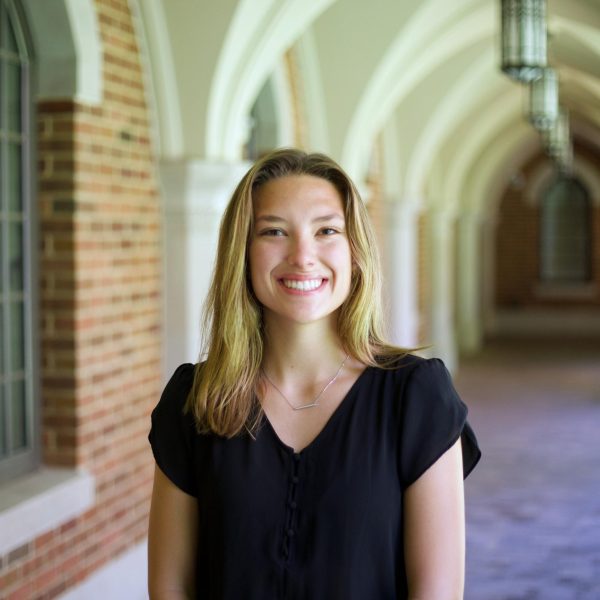
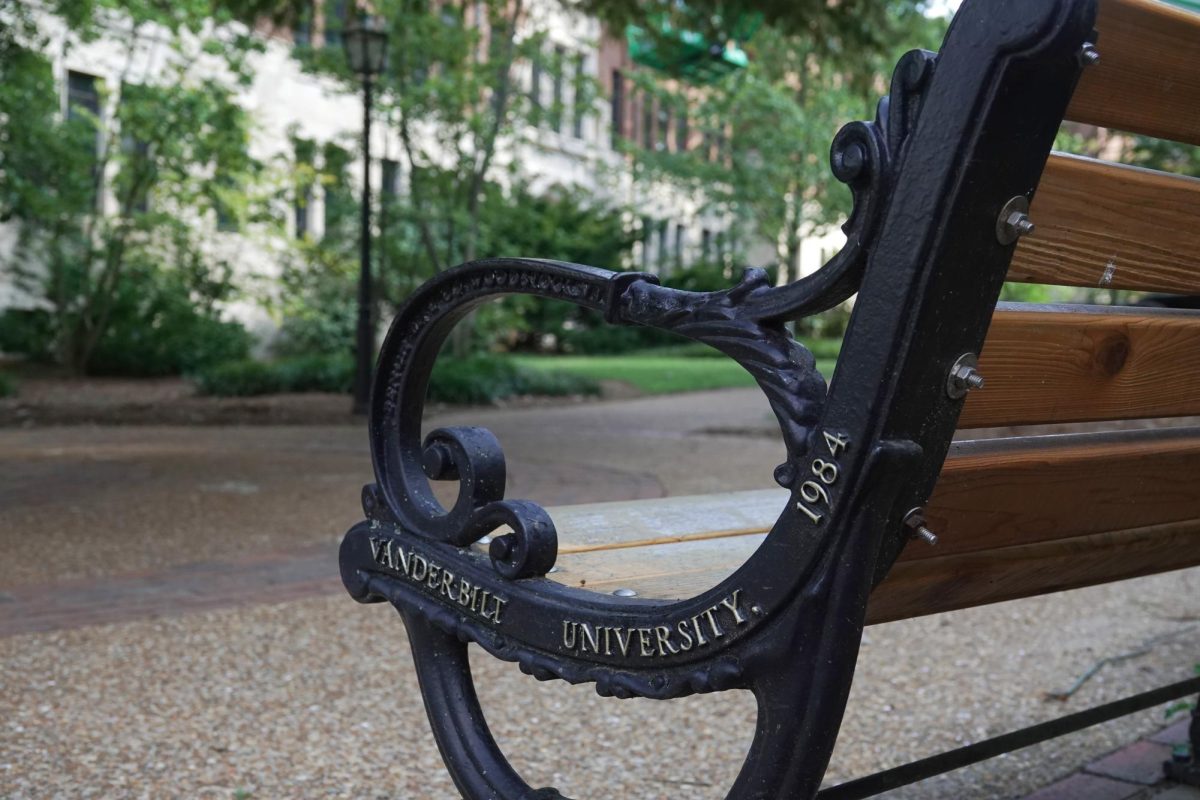





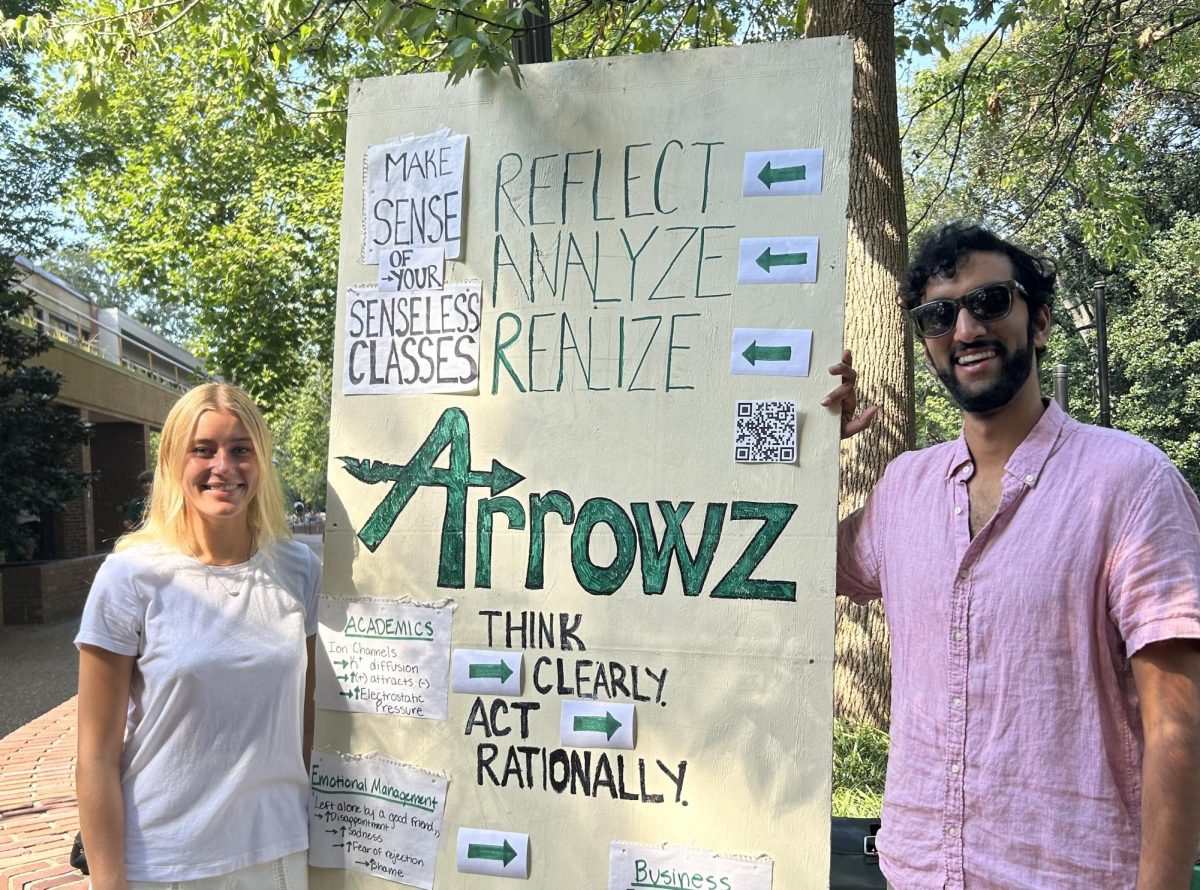
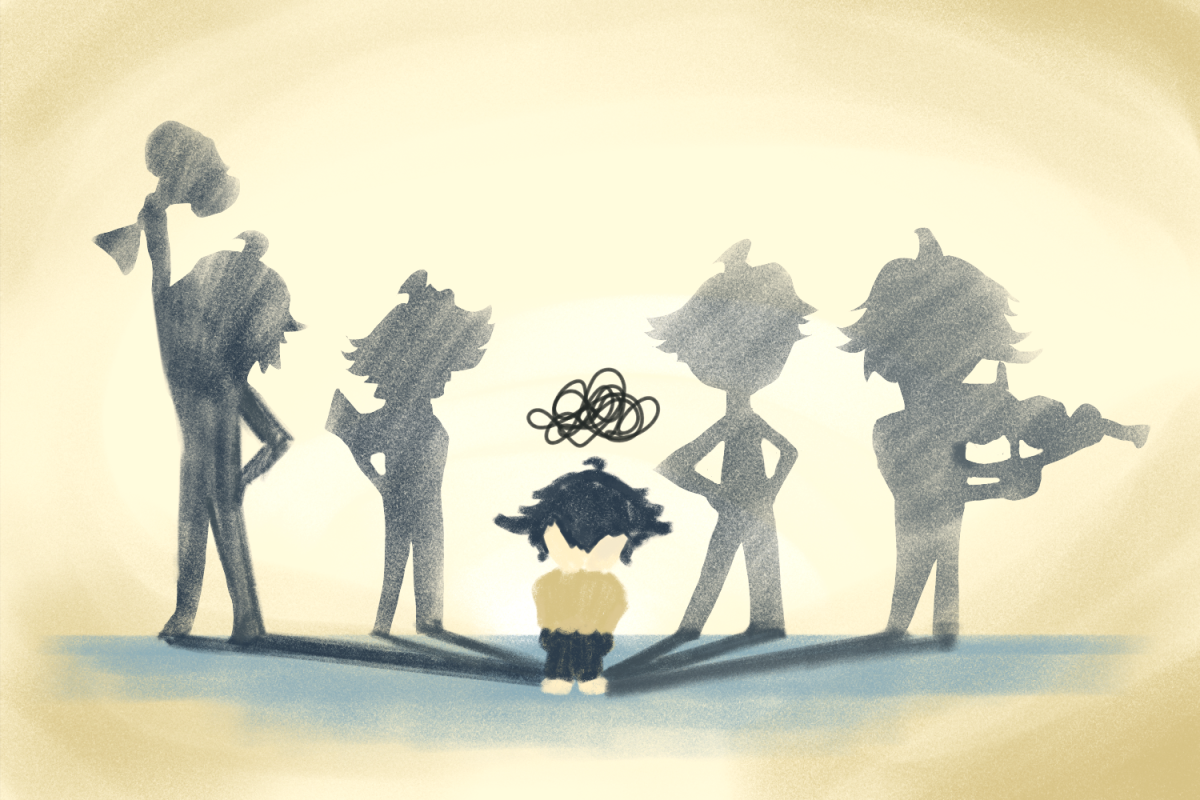
Red-pilled student • Oct 30, 2023 at 2:31 pm CDT
You’re saying that life isn’t as perfect as it’s portrayed in movies? That’s crazy